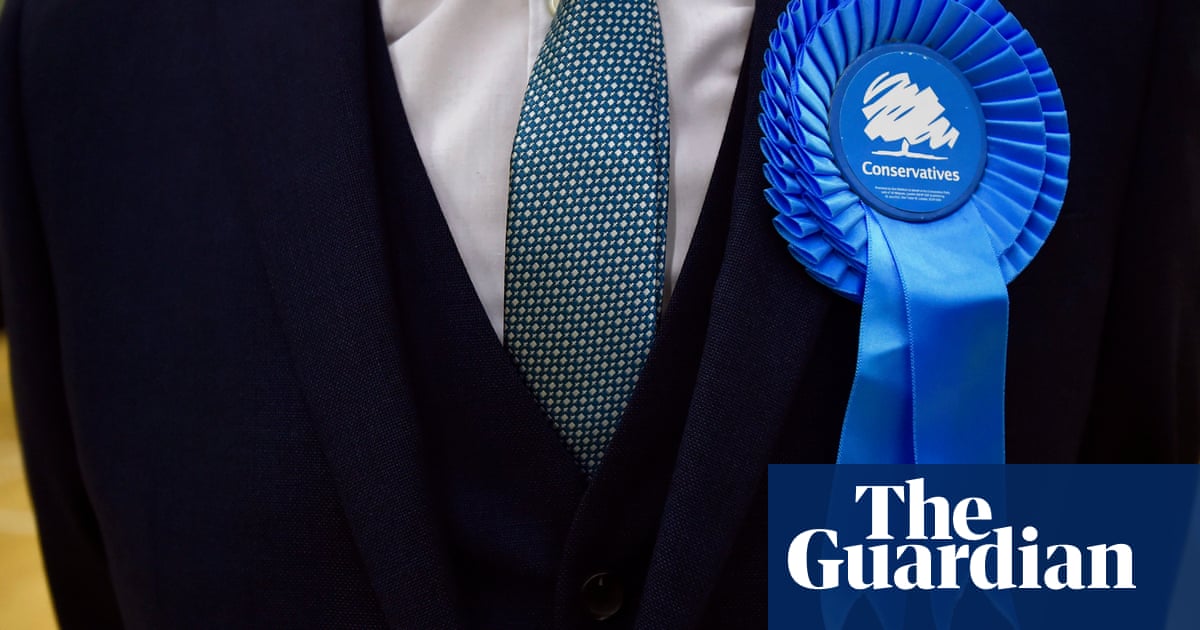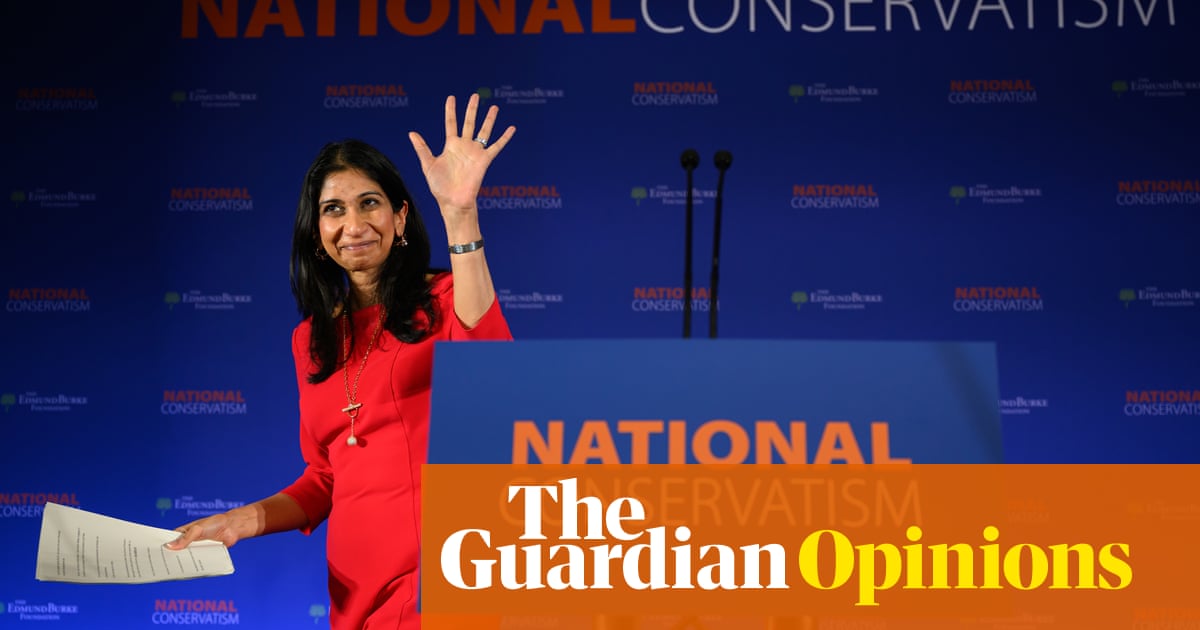
A long-awaited review into Islamophobia within the Conservatives has been condemned as a whitewash by Muslim Tories despite it including criticism of the language used by Boris Johnson and the mayoral campaign run by Zac Goldsmith for insensitivity.
Lady Warsi, the party’s former chair who first demanded an inquiry into anti-Muslim sentiment within its ranks, disagreed with the review’s conclusion that there was no evidence of institutional racism, saying there were issues “from the top ... to the bottom” of the party.
The prime minister’s comments, in which he compared women wearing the burqa to letterboxes, were singled out for criticism in the inquiry headed by Prof Swaran Singh.
The report found that anti-Muslim sentiment was still present at local association and individual levels, but claims of “institutional racism” were not borne out by evidence.
Warsi said that the party’s “processes, attitudes and behaviour” were at fault from its leadership to its grassroots. “The report concludes that from the top – from the prime minister at one level – to local associations at the bottom, there is an attitude issue and a problem and a behaviour issue in terms of Islamophobia,” she told Sky News.
“So on each of those counts it satisfies the definition of institutional racism ... the way I see it, if it looks like institutional racism, feels like institutional racism, fits the definition of institutional racism, then I’m afraid it is institutional racism.”
Sajjad Karim, who was a Tory MEP for 12 years and chaired the European parliament’s working group on Islamophobia, said the report had failed to identify endemic party prejudice aimed at Muslims.
“The manner in which this inquiry has been conducted means it is nothing but an attempt to whitewash deep-rooted issues out of sight.
“It is difficult to identify any basis upon which this has been a serious attempt to address credible and serious matters or deliver on Boris Johnson’s leadership election pledge.
“If anything it acts as an illustration of an attitude inclined to view Islamophobia as an irritant best pushed to one side, when not being utilised in promoting culture wars, rather than as a serious, systemic issue which needs to be rooted out.”
Another senior Muslim Tory said: “This report is a sad reflection of how little the party cares about inclusivity.”
In a pointed message to Johnson, the review said the leadership of the party “ought to set a good example for appropriate behaviours and language”.
The Tory party’s co-chair Amanda Milling said it accepted the recommendations of the report and apologised “to anyone who has been hurt by discriminatory behaviour of others or failed by our system”.
The prime minister was cleared by a majority on an independent panel over a complaint that he broke the party’s code of conduct in a Daily Telegraph column in 2018, in which he described Muslim women who wear the burqa as looking like “letterboxes” and “bank robbers”.
Johnson said he was “sorry for any offence taken” over his journalism and told Singh’s investigation: “Would I use some of the offending language from my past writings today? Now that I am prime minister, I would not.”
The Singh investigation report said several interviewees who spoke to the inquiry considered Johnson’s language “discriminatory and unacceptable”.
In response to Johnson’s assertion he would not make such remarks now, the report said: “While this could be considered leading by example, the investigation would like to emphasise that using measured and appropriate language should not be a requirement solely for senior people, but ought to be expected throughout the Conservative party.”
The investigation also examined the controversial and unsuccessful mayoral campaign that Goldsmith – now Lord Goldsmith of Richmond Park – ran in London against Sadiq Khan in 2016, during which he accused his Muslim Labour rival of associating with extremists.
The report said Goldsmith “accepts poor judgment in the way his campaign was conducted but forcefully denies harbouring anti-Muslim sentiments or using such sentiments for political advantage”.
The report said high-profile cases such as Johnson’s and Goldsmith’s “give the impression to many that the party and its leadership are insensitive to Muslim communities”.
Singh said: “I’m not saying that the party leadership is insensitive to Muslim communities. I’m saying that the perception is very strong.”
The party established the inquiry after a series of allegations about Islamophobic behaviour in the party, and it was widened to consider all forms of discrimination.
From 2015 to 2020, the party’s central database recorded 1,418 complaints relating to 727 incidents of alleged discrimination – an annual average of 237 complaints about 122 incidents in a party of 200,000 members.
More than two-thirds of the incidents – 496 cases – related to Islam and 74% of all the cases involved social media activity. About a third of cases – 231 – resulted in a sanction, with 50% resulting in a suspension and 29% an expulsion from the party.
No action was taken in 418 incidents, for reasons including the complaint being in relation to someone who was not a party member, insufficient evidence or a prior investigation.
There was no evidence that complaints related to Islam were treated differently from those related to other forms of discrimination, nor did the panel find evidence of attempts to pressure or interfere with the handling of individual complaints.
Singh said: “I hope fair-minded people who read the report will see that we haven’t shied away from criticising the party.
“In fact, this is going to be very uncomfortable for the party. I hope it makes them uncomfortable, I hope it makes the rank and file uncomfortable and it also spurs them into action.”
The report called on the Tories to introduce sweeping changes to the complaints process, and to publish an action plan within six weeks to set out how it would respond, followed by a six-month progress report and a one-year review carried out by an appropriate body.
The Muslim Council of Britain gave a “guarded welcome” to the report but said the party must acknowledge the scale of the problem, apologise for failures highlighted and adopt the investigation’s recommendations.
The former Tory chancellor Sajid Javid said the party must accept the report’s recommendations. “Although the investigation didn’t find any evidence of institutional or systemic anti-Muslim prejudice, it did find distressing examples of anti-Muslim sentiment at local association and individual levels, as well as serious shortcomings in the party’s complaints process,” he said.












